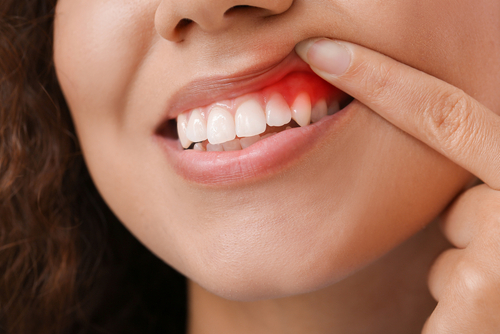Some signs whisper. A subtle ache in the lower back or a flicker in the streetlight that always turns red just before you cross. Sometimes it is as small as tender, inflamed gums, a quiet hint from your body that something deeper may need attention. These signs do not exist to scare us. They exist to redirect us. To help us reroute before we veer too far off course. They ask us to notice, to adjust, to repair what is faltering before it breaks.
Of all the quiet signals your body sends, inflamed gums are among the easiest to overlook. A little redness, some tenderness, maybe a bit of bleeding when you brush. It is natural to assume it is nothing. But these small changes are worth paying attention to. They are your mouth’s way of asking for a little extra care before things get worse. Noticing them early gives you the best chance to maintain a healthy and strong smile.
Why Are My Gums inflamed and Red?
When gums appear inflamed and red, they are reacting to irritation caused by bacteria along the gumline. The tissue becomes swollen, tender, and more likely to bleed when brushing or flossing.
The most common cause is gingivitis, the earliest stage of gum disease. Plaque, a sticky layer of bacteria, accumulates on the teeth and irritates the surrounding gum tissue. Bacteria in the plaque produce toxins that trigger an inflammatory response, causing the gums to become red, puffy, and sore.
Fortunately, gingivitis can often be reversed with improved oral hygiene and professional care. Thorough brushing and flossing, combined with a dental cleaning, can help remove plaque and allow the gums to heal and return to a healthy state.
If left untreated, inflammation can progress deeper into the tissues and bone that support the teeth. This advanced stage, called periodontitis, can lead to gum recession, loose teeth, and even tooth loss.
Inflamed, red gums are an important sign that your mouth needs attention. With prompt care and consistent oral hygiene, you can prevent further damage and restore your gums to good health.
Are My Inflamed Gums From My Dentures or Dental Implants?
Let’s bust a common myth right up front: losing your natural teeth doesn’t mean you’re off the hook for gum problems. Your gums still need care, whether you’re wearing dentures, sporting dental implants, or both. Inflamed gums can absolutely happen, and they’re worth paying attention to.
For denture wearers, irritation often comes from a condition called denture stomatitis, which is a fancy way of saying your gums are angry under those plates. When dentures don’t fit snugly, aren’t cleaned well, or trap moisture and bacteria, the soft tissues underneath can become red, swollen, and sore. A fungal infection can also contribute to the problem, making the situation worse. Even a perfectly clean denture that rubs in the wrong place can create irritation and inflammation over time.
If you have dental implants, the story shifts slightly. Here, inflamed gums can signal conditions such as peri-implant mucositis or its more severe counterpart, peri-implantitis. Both are caused by bacterial plaque building up around the implant. Just like gum disease with natural teeth, the infection starts in the soft tissue. Left unchecked, it can reach the bone and threaten the stability of the implant itself.
What Can I do To Maintain Healthy Gums?
Your gums are on the front lines of your oral health, constantly defending against bacteria and irritation. Yet, they’re often overlooked until they start to hurt or bleed. Taking a few simple steps every day can help prevent these problems and keep your gums strong, comfortable, and able to support your teeth for the long haul.
Start by brushing at least twice a day with a soft-bristled toothbrush and fluoride toothpaste. Angle the brush at a 45-degree angle toward the gumline and use gentle, circular motions. Brushing too hard or skipping the gumline allows bacteria to build up where they can cause the most damage.
Floss every day to clean between your teeth and under the gumline. A toothbrush can’t reach those areas, and they are exactly where plaque and food particles like to hide. Use an antibacterial mouthwash to rinse away bacteria and help keep your breath fresh. This provides your gums with an additional layer of protection against infection.
Finally, visit our office regularly for professional cleanings and checkups. Our hygienist can remove tartar that you may not be able to remove at home, and we can detect early signs of gum disease before they become serious.
Give Your Gums the Care They Deserve
When your gums become inflamed, tender, or red, it’s not just a minor inconvenience. It is your body’s quiet way of asking for care. At Carolina Dental Arts, we take those signs seriously, and we are here to help you do the same. With a gentle cleaning, a thorough checkup, and guidance tailored to your needs, we can help soothe irritation, prevent further damage, and keep your smile healthy for years to come. Schedule your visit with us today and give your gums the attention they deserve.
Stay connected with Carolina Dental Arts on Facebook and Instagram for tips, updates, and ways to keep your smile at its healthiest.

